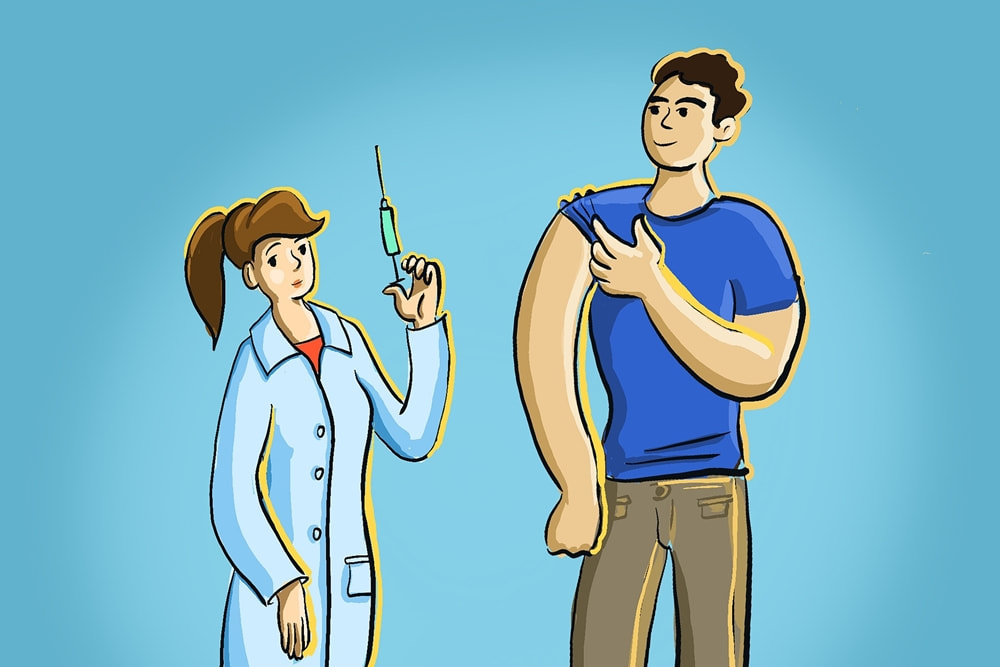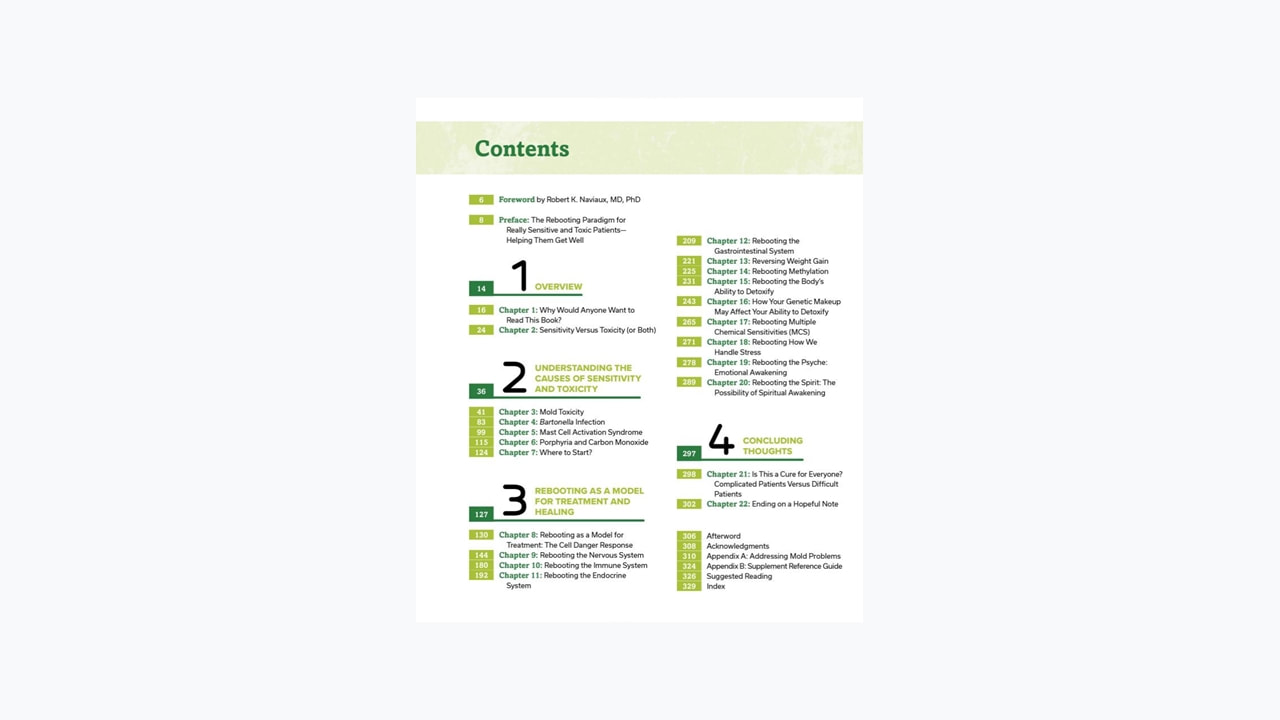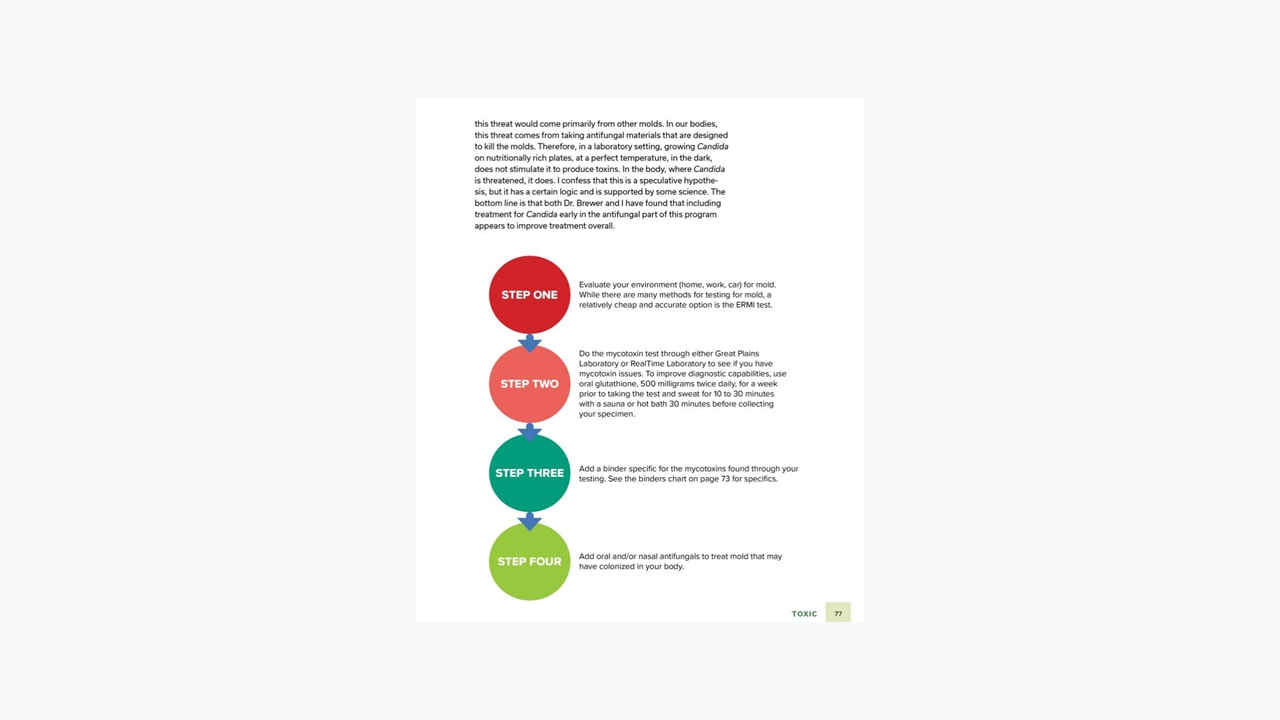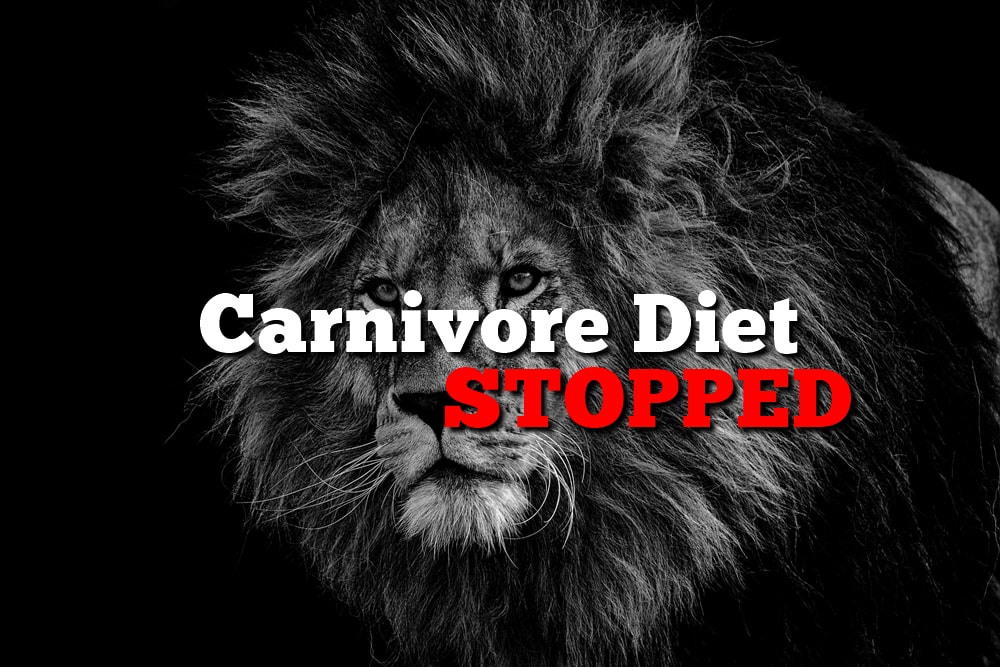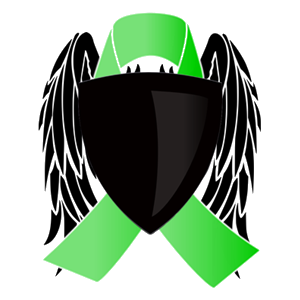|
First off, Happy New Year!! I've been getting a lot of messages wondering how I am doing, what I'm eating, what treatments have and have not worked because I haven't updated Tired of Lyme in so long (over 2 years). With that said, I present to you the latest update on my health (try to control your excitement). I'll do my best to cover every aspect as much as I can, but if you have any questions, just post them below and I will do my best to answer each and every one thoroughly. So, how am I doing? Pretty good, actually. Thanks for asking! If I had to put a number to how I am feeling, I would say I am at about 90%. 100% being completely symptom free. But numbers are only one factor to gauge progress in healing from chronic Lyme. There's also qualitative factors, such as working full time (40+ hours a week), getting back to the gym to pump some iron, and picking up new hobbies on the side. As of right now, I'm only taking modified citrus pectin, molybdenum, quercetin, and Thorne's SF722. That's it! These 4 daily supplements are enough to keep my health stabilized. Now, on top of this, I've also been working Andy Cutler's Chelation protocol, which consists of taking DMSA and Alpha Lipoic Acid 3 days a week (1 round) to treat potentially elevated levels of lead and mercury. I've actually just completed 8 rounds of DMSA and will begin the ALA this weekend to really dig out the mercury that I suspect may be keeping me from getting to 100%. Researching my own condition, seeing many, many doctors, and treating myself with many, many drugs and supplements since 2009, has made it very clear as to the path my body took to become so declined. Moving forward, I plan to treat the heavy metals, which should in turn allow me to treat excessive yeast, which should in turn reduce and eliminate any MCAS I've been experiencing. Don't get me wrong, I do still have bad days, but I can't say that without also saying they really are far and few. The way I've come to describe healing from this condition is "less frequent and less severe". As you continue to move in the right direction with the treatment that works for you, you will notice that your symptoms will occur less frequently, but when they do surface, they are less severe than they've ever been. With that said, I do still have some brain fog, some aches on occasion, but my biggest and most difficult symptom to eradicate is the derealization. In short, derealization is, as WebMD puts it, "a mental state where you feel detached from your surroundings". I learned that the derealization was my body's way of protecting me from a very traumatic experience (i.e., having chronic Lyme). From a completely normal and healthy 21 year old, to immediately having to drop out of college, quit my job, lose many of my good friends, distance myself from family, all of this can only be traumatic to a person, especially in their 20s, the "discovering who you are decade" of your life. So long as the chronic Lyme has been around, so has the derealization to protect me. I suspect that as I continue to put these final nails in the coffin, the derealization will lift. We will see. I do also want to mention that though evil and bad things happen in life, good also exists at the same time. It really isn't about ignoring the bad you're confronted with, because some times you just can't, but, you can also, at the same time, look a bit more for the good that can become because of the condition. If I had to label my diet, I'm in between Keto and 300 carbs a day. As I've gotten better, I've noticed that I can tolerate more foods. I still do not eat gluten, dairy, nor sugar. I do tend to hover primarily around grass-fed beef, as it's the tried and true go-to for helping me feel better if my symptoms tend to wander. I did do carnivore for a period of time -- I have blog posts on it. It was a great diet for the time, but as you get better and your lifestyle becomes more normal, your body changes and its needs change too. If you're on carnivore and its working for you, stick to it, as I would say for any diet. However, I seemed to function better with both meat and plant matter, but still very meat-centric. As my energy needs grew from working full time and lifting weights, I have started to include more carbohydrates. I have an insanely fast metabolism for a 35 year old man. Like, for every hour I don't eat, I lose 3 pounds. I don't know what in my body burns so much fuel. Some day I'll stop growing. Other than just letting it serve as a place where people going through chronic Lyme can find resources and consolation, nothing at the moment. I launched this site in 2011, when not much information was available on the internet about chronic Lyme. Today, in 2024, there are so many better websites that are more updated on the latest information on chronic Lyme, so I yield to them in their (hopefully) honest pursuit to better the lives of those with chronic Lyme. If ever I do get to 100% health and put this condition in complete remission, I've toyed with the idea of writing a book or launching a website completely dedicated to how I got over it. We'll see what happens! There is a lot -- and I mean a lot -- of information out there now regarding chronic Lyme. Some of it is good. Some of it is bad. Some of it is in between. Where do you go as someone in 2024 discovering you have this condition? I've always been a big fan of Dr. Marty Ross' advice and guidance on the condition. He's always updating his recommended treatments based on new information that comes out and how his patients are responding to their treatments. Check out his website: treatlyme.net. I've also always been a big fan of Stephen Buhner's research and recommended treatments for chronic Lyme. You can find his books on Amazon, but the best one to start with is Healing Lyme (2015). On a quick side note, I do want to say that even though Stephen Buhner is no longer with us, his knowledge, genius, and wit remain for everyone who needs it. I got the incredible chance to interview him a couple of times for Tired of Lyme and he never let me down in his responses. Thank you, Stephen, for all of your years of hard work and research on chronic Lyme from a scientific/herbalist perspective. It's exactly what I needed during the worst years of my life and was a massive stepping stone to getting me to where I am today. You are missed greatly. Lastly, I'd recommend Dr. Neil Nathan MD's book, "Toxic: Heal Your Body from Mold Toxicity, Lyme Disease, Multiple Chemical Sensitivities, and Chronic Environmental Illness". Excellent modern resource for treating chronic Lyme and its associated conditions. This last message is for you. Whether you've followed me on Tired of Lyme from the start, or you're just discovering this site for the first time, my hope is that you first realize that you're not alone with condition. So many other people deal with it day in and day out, trying to find an explanation for how to get rid of it and why it's so hard to. It really is a difficult condition to get rid of, but you can absolutely get better from it. I'm not 100%, but I am light years away from the bed-ridden 21 year old I used to be. I'm 35 now, if you were wondering, because I was. Just like the advice I've always given on this site throughout the years, keep researching and learning as much as you can about the condition. What works for one person may not work for the next. You really have to be your own advocate because you know your body best. Don't be afraid to try new treatment methods (as per your doctor's recommendation) because eventually you ARE bound to stumble upon something that works. Good days and bad days are normal. There will be times where you'll honestly which you just weren't alive and question what the point of it all is. Again, not unusual for anyone going through this. But, I like a good challenge, and that means sometimes taking a day or 2 -- or even a week -- on the chin. Because in between the doom and gloom, there are reminders that you can feel good and normal. They'll be short-lived early on, but as you progress on the right treatment, the good days will eventually hang around much longer than the bad. THIS I promise will happen. I can attest to it.
Comments
Editor’s Note: While the COVID-19 vaccine has been politicized, this post will not be in any way, but rather objective in why I decided to get the Pfizer COVID-19 vaccine and how I responded to it to help others with chronic Lyme Disease make an informed decision. Also, for the record, I’ve never tested positive for COVID-19, nor have I ever had symptoms suggestive of contracting COVID-19.
Editor's Note: I was not asked to review this book by Dr. Neil Nathan or the book's publishing company. I reviewed this book on my accord, which should be fairly obvious since the book came out in 2018. In being a part of the Lyme community since 2009, I’ve seen a lot of Lyme books come to the market, but have only ever read a handful since most only seemed to rehash the same outdated information with no clear direction for treatment, consist primarily of physician or patient stories -- which were relatable, but not helpful for healing -- or be a cheap trial offer for an expensive treatment program to be purchased at a later time. It was honestly all really discouraging. The Last Lyme Book I Purchased The last Lyme book I purchased in hopes of completely restoring my health was Stephen Buhner’s 2015 “Healing Lyme”. Phenomenal book. 5 out of 5 stars, but much of the information in this book that actually made me feel better -- for the first time since contracting Lyme -- I was already employing from Stephen’s 2005 book by the same title. I love Stephen Buhner. I respect his unique and unrivaled knowledge of plants as a master herbalist and will forever be grateful for his insightful contributions to the Lyme community, but even he himself said,”...there is no one-size-fits-all treatment for Lyme or any of its coinfections”. While Stephen Buhner’s treatment protocol gave me much hope, I needed something more. There was still something going on beyond which the help of herbs could provide. The Age of Wait and See While working the Buhner protocol, I would try to treat other common issues known to keep people with chronic Lyme ill, such as biotoxin illness, an MTHFR gene mutation, excessive yeast, heavy metals, nutrient deficiencies, stagnant lymph fluid, and I’m sure there are more. Treating these conditions resulted in some ups and down, but never an ever-improving direction. I felt like I found some pieces of the puzzle, but I didn’t know how many puzzles I was really trying to put together. So, after really just becoming exhausted from treating myself to no avail, I became rather complacent in restoring my health. I just let my condition run its course until something worthwhile came along that could top the Buhner protocol in getting me to feel better. While I waited -- years would pass -- I continued suffering from a very unusual and debilitating symptom after I’d take a shower. My nose would get stuffy, eyes became glazed, face would turn pale, and I’d just feel absolutely horrible. I’ve come to describe the reaction as “feeling poisoned or physically disgusting”. My family practitioner -- not an LLMD by any means -- gave this unusual symptom a thought and suggested something along the lines of a histamine reaction. He prescribed some Claritin, but it never helped. In fact, the drug itself made me feel off to where I never took the Claritin again. Another dead-end and a little more hope lost. [Re]discovering Dr. Neil Nathan, MD Dr. Neil Nathan was one of the many Lyme-literate physicians I would come across in my decade-long research of chronic Lyme -- ironically he forwarded Stephen Buhner’s 2015 book “Healing Lyme” -- but he never gave me a reason to listen more to him -- until one fateful day. I was on YouTube doing some generic research on mold toxicity when I stumbled upon a BetterHealthGuy video interviewing Dr. Neil Nathan. I gave it a listen because Scott of BetterHealthGuy.com always has good information for the Lyme community. Within the first 5 minutes of a more than 90 minute long interview, Dr. Neil Nathan begins to address how a person with Lyme can be so hypersensitive to their environment, that even water can trigger what he identified as Mast Cell Activation Syndrome. I’m sure I’ve mentioned this in previous blog posts, but of all the doctors I’ve seen and research I’ve done on chronic Lyme, not a single explanation was ever given for how a simple shower could cause a person with chronic Lyme to feel so bad and ill, except for my out-of-the-box thinking family practitioner, who suggested a histamine response of some kind. I was now all ears and brain for anything Dr. Neil Nathan had to say. I stayed and watched the entire 90+ minute interview, and when it was done, I ordered his book "Toxic: Heal Your Body from Mold Toxicity, Lyme Disease, Multiple Chemical Sensitivities, and Chronic Environmental Illness" (mentioned in the video) from Amazon without the slightest hesitation or hint that I may be pissing money into the wind (again). This was my guy. Reading Dr. Neil Nathan, MD’s Book I was super stoked to get this book. In fact, I finished reading it in just a couple of days because I wanted to absorb everything. But I really was an eager beaver to know what else Dr. Neil Nathan had to say about this unusual shower symptom I had and what I could do about it. One less day of suffering was fine by me. When I initially opened the book after receiving it, I was immediately dumbfounded. It was so inviting! The monochromatic colors of the page numbers and diagrams, the use of an attractive typeface -- beautifully balanced with typographical emphasis -- and a college textbook dimension, all suggested that someone made the extra effort to ensure you’d stay in the book. And I had not even started reading the book yet, but when I did, I was further impressed with the layout of the content. The first half of the book discusses the 5 main reasons (primarily just 2 reasons Dr. Neil Nathan notes) for sensitivity and toxicity in a person with chronic Lyme disease. In other words, he explained, in a very easy to understand language and content progression, why I was likely not getting better. The second half deals with rebooting specific parts of the body to work as they once did. Dr. Neil Nathan has treated thousands of patients. With the book, he does tell patient stories, but merely as a complement or context to the detailed explanation for what was plaguing the patient. Once you understand what could be keeping you from getting better, Dr. Neil Nathan doesn’t just end the book. He outlines exactly what you need to do based on what is best for you. He doesn't give a one-size-fits-all treatment plan. Not in the slightest. Dr. Neil Nathan understands that every person with this condition requires a slightly different approach to a larger treatment principle. Some people will need to treat mold toxicity first, while others will need to get their Mast Cell Activation Syndrome under control first before treating the mold. Some may just be dealing with Bartonella. As would not be expected, he outlines exactly how to do this in really the least expensive way possible. This cost efficient approach to feeling better reminded me very much of Stephen Buhner’s philosophy that a person does not need a lot of money to get better from chronic Lyme. Both of these great men surely must be cut from the same cloth. It doesn’t surprise me in the least that Stephen Buhner asked Dr. Neil Nathan to forward his 2015 book “Healing Lyme”. Should You Get the Book?If you’ve been dealing with chronic Lyme disease for many years, have tried different treatment modalities with some success, but feel there is still something more you’re missing, then yes -- you want to get a hold of this book. If you’re extremely sensitive and reactive to your environment, whether it be from a shower, cologne, food, temperature fluctuations, noise, light, touch, sound, etc, then you absolutely need this book. If you’ve been diagnosed with Biotoxin Illness (i.e., Chronic Inflammatory Response Syndrome or CIRS), have treated it, but with not much success, this book will be the correct guide. If you’re sure you have the right treatment modalities and have figured out the conditions that are keeping you ill, but just aren’t sure how or when to best implement the treatments, this book will serve you well and give you the direction you need. If you’re looking for an easy-to-read book, by a caring and humble Lyme physician, who speaks on your level, relates to your suffering, acknowledges there is a misunderstood mechanism behind your ailing body, imbues such hope that one can not only get better, but realize that it was never really that hard to do all along, Dr. Neil Nathan, MD is your man. How Am I Using the Book? After reading the book -- and with my new treatment plan in hand -- I’ve started the process of removing biotoxins first, specifically yeast toxins (i.e., gliotoxins) with bentonite clay. If you’ve been following my blog, you know I have Biotoxin Illness and have been treating it off and on with modified citrus pectin, which has helped. However, after reading this book, I became aware that removing certain biotoxins requires using certain binders, with no mention of modified citrus pectin at all. I’m not saying that the modified citrus pectin didn’t help or that it can’t be used to feel better, but damn, when I started the bentonite clay specifically to remove the biotoxins (gliotoxins) from excessive yeast (as instructed by Dr. Neil Nathan), I felt another piece fall into place. I’m also attempting to remove the excessive yeast with Thorne’s SF722, but as noted by Dr. Neil Nathan, the body knows what it wants to take care of first, so I’m listening carefully to what my body is responding best to. I learned that my unusual shower symptom is most likely a Mast Cell Reaction. I also learned that I likely reacted badly to the Claritin my family practitioner initially prescribed me because of the fillers within the drug itself rather than the drug. I’ve also taken away some good philosophy from Dr. Neil Nathan regarding treatment. He mentions -- quite often throughout the book -- “If some is good, more is not necessarily better” , in regards to dosage. But my favorite line from the book is when he says, "It is important for patients to remain hopeful and enthusiastic and to continue trying new treatments even when previous ones have set them back. Eventually, you are bound to find treatments that work." Conclusion The information -- and the just as important instructions and directions for this information -- in this book was simply not available 10 years ago when I first got sick, let alone would my then family practitioner have it. Dr. Neil Nathan has gathered his knowledge and understanding, from treating thousands of patients throughout the years, for why many with chronic Lyme disease, Mold Toxicity, and Multiple Chemical Sensitivities, are simply not able to restore their health to 100%, even despite having many small improvements. He acknowledges the unique suffering a person with these conditions goes through, explains -- in layman’s terms -- the exact mechanisms behind the suffering, and finally offers the simplest directions, and cheapest of treatments, to combat, reverse, and remove the suffering. As a society, our acknowledgment of these conditions is still shamefully in its infancy, but regardless, so much has been gained and learned in just the past 10 or even 5 years alone -- by dedicated and brilliant physicians like Dr. Neil Nathan -- that the mystery in what may be responsible for causing these conditions, and how to effectively treat them, has very much vanished. After seeing many Lyme books come to market through the years, and discounting most with a simple glance of the cover, this is the Lyme book you end up buying.
It's been over a year since I've given an update on where my health stands. When I last left you guys, I was experimenting with the Carnivore Diet, which I'll start with briefly and move into my health and current treatment as a whole. My Current DietAm I on the Carnivore Diet now? No. However, I did attempt to try the Carnivore Diet one last time in November of 2020 for a little over 2 weeks. It was very easy to transition to since I've been in ketosis for about a year and a half. While I seemed to do really well on eating just grass-fed ground beef, I definitely do a lot better with some carbohydrates added into the mix. Despite this, I am still very reactive to many foods, as I continue to repair my gut. My current diet consists of:
How Have I been Feeling?Pretty damn good, at least before I started taking Thorne's SF722 for my gut in November of 2020. I'll explain more later. In the last year, I've chipped away a lot of what has been keeping me from feeling 100%. Much of this revolved around my gut, with the start of my current diet making the biggest of impacts I've seen thus far. From the diet, I then worked the possibility of having low stomach acid by adding in Pure Encapsulations' Betaine HCL with Pepsin. The HCL really helped with digestion, allowed me to put on some healthy weight, and energy levels grew and were much more consistent with a normal person. So much so that I even ended up starting a business that requires a good amount of physical labor. Despite this huge improvement, I still had a pain in the right side of my upper abdomen after eating, which I noted in my previous blog posts on the Carnivore Diet. Back to the internets for research and what seemed most plausible was an aggravated gallbladder. It made sense since I was eating high fat on keto. So how do you calm an aggravated gallbladder? Why with bile salts and digestive enzymes of course! So I did research on a good gallbladder support supplement and came across and started taking Dr. Mercola's Gallbladder Enzymes. The pain in my right side of my upper abdomen seemed to improve, which had me thinking now. Why was my gallbladder so aggravated? I have heard of people with chronic Lyme having gallbladder issues, so much to the point of having them removed. So I researched a little more and learned that if you don't have adequate levels of acid in your stomach, your gallbladder won't be trigger to release bile, nor will your pancreas be triggered to release digestive enzymes. Was this my case? I don't know. I'm not a doctor nor did I have any labs done, but surely how I improved correlated to what I was researching. But shouldn't the HCL have made the stomach acidic enough to trigger the gallbladder and pancreas? Yes, but I think my gallbladder needed additional support because my stomach acid had been so low for so long. I suspect I developed gallbladder stones over time because of the low stomach acid and they caused obstructions that prevented bile from flowing into my stomach after eating, hence the pain in my upper right abdomen after eating. Again, I don't know this to be the true explanation, but the body seems to say it is. What is my Current Treatment?My current treatment protocol consists of just bentonite clay and Thorne's SF722. That's it! In the past 10 years, in all of the research and experimenting I've done for my health, all roads always seem to lead back to my gut. My first symptoms to indicate something was wrong came from the gut. This is now no surprise to me as I was a child living in the 1990s, where high sugar and artificial everything was the American diet. So most likely excessive yeast is the result of that wonderful and nourshing diet from the 90s, but I do suspect that Lyme is still an issue for me, but not as much as the yeast. When a full moon rolls around, I do tend to feel worse -- not all the time -- but enough to remember Dr. Joseph Burrascano, M.D. suggesting that a person still had an active Lyme infection is they feel worse every 4 weeks. So, with that figured out, I am currently attempting to remove excessive yeast from my gut with Thorne's SF722 and it's doing a hell of a job. From there, I mop up the biotoxins from the yeast (i.e., glitoxins) with the bentonite clay. A quick note on Thorne's SF722: I've taken this supplement before, but it never really did anything for me. I had high hopes for it, especially considering the reviews. And it was the reviews that indicated that the supplement could be more effective if you broke them open with your teeth before swallowing. So I started doing this for the 5 capsules 2x a day dosage I was on. Big mistake. Thorne's SF722 immediately became the yeast weapon I've been looking for, as I herxed pretty badly. So much so that I had to drop my dosage from 5 capsules 2x a day to just 3 capsules 1x a day. On top of this, I noticed I didn't need to take the HCL anymore because the Undecylenic Acid of the SF722 capsules is, you guessed it, acidic. Could it be that excessive yeast changes the pH of the stomach to more alkaline? Maybe, especially since H. Pylori can, but nonetheless, an acidic stomach seems to do me good. Go figure. What Does the Future Hold for Me?For now, I will continue to repair my gut and remove excessive yeast with Thorne's SF722, with the intent to graduate to Byron White's A-FNG, if needed. I'll also continue to mop up yeast biotoxins with bentonite clay as instructed by Dr. Neil Nathan, M.D. in his book, "Toxic: Heal Your Body from Mold Toxicity, Lyme Disease, Multiple Chemical Sensitivities, and Chronic Environmental Illness". Once the excessive yeast is in control and my gut is good, I'll then consider if a Lyme treatment is still warranted. If I am ever to restore my health to 100% -- which I am very confident in doing now than I have ever been -- I've toyed with the idea of writing a book or maybe just a blog post with the specifics of how I did it. Regardless of the medium for which I would make this information available, it would be 100% free and available to anyone to use for their own benefit. Losing my health just over 10 years ago has taught me so much and morphed me in ways that I don't think a normal life ever could have, for the better, surely. If people with this condition are suffering any more than I have (I'm sure they are) -- and I've suffered quite a bit mentally and physically -- then I feel it is a duty as a human being to lessen the suffering of others if I can lessen, or better yet, completely dissolve, my own. If I can do that with the knowledge and experience I've gained in potentially restoring my health 100%, that is the greatest reward for me. Not money. Not fame. Not anything other than extending a helping hand. Just Some Final ThoughtsClearly I'm not posting or commenting on Tired of Lyme as often as I used to, but this is a good thing. It's because I've been feeling so much better, with so much of a normal life returning. With this said, I do still check in on Tired of Lyme, maintain and update its coding, and read comments and messages I receive from you all. I hope that many of you have found a road to recovery or are at least mapping it out, like I am. If you're not, then I offer the following information to you for which I would have given to myself 10 years ago:
I do occasionally wonder what my life would have been like had I never lost my health 10 years ago. I think of the struggles I've been through since then, but all that I've accomplished and the good that has come because of it. Clearly life throws challenges your way, with some challenges being harder to overcome than others and that's okay. You do your best and learn along the way, not only about how to better yourself, but what you're capable of under said challenge. Your best ally is to not only never give up, but continue to learn and ask questions. Make sense of what is happening to you with every symptom as a clue. Eventually, you'll have all of the pieces of the puzzle and be able to place them all back together.
At the moment, I am no longer on the Carnivore diet. In short, it showed me some really impressive results by drastically dropping my inflammation and reducing my symptoms, but the fat without any plant fiber made digestion seriously unpleasant. In making digestion seriously unpleasant, I was much more reluctant to eat higher calorie meals (i.e., more fat) in order to not only sustain my weight, but add on some pounds.
My weight started dropping as I reached the end of my 30 days of Carnivore. My protein to fat ratio was roughly 30% protein to 70% fat. Sometimes a bit higher on the fat. Honestly, I would have stuck with the Carnivore diet had it not been for the unpleasant digestion. This included excessive belching, nausea, vomiting on occasion, and even a run or 2, if you know what I mean. It got so bad at one point that I ended up in the E.R. I told the E.R. doctor about my Carnivore diet. In knowing this, he said to drink some more water because my creatinine was a bit elevated due to my high protein diet. Other than that, and as would be expected, everything was normal (vitally speaking) and they discharged me with a potential viral diagnosis. They even ran lipase levels without my suggesting, which were normal. So, the girlfriend, with a background in diet and nutrition, recommended that I throw in some fiber to see if it helps. It did and it did immediately. Of course, in throwing in some fiber, I was simultaneously throwing in carbs -- granted they were extremely low. I moved into Keto territory. In throwing in the carbs for the first time in a month, my yeast symptoms -- which had completely dropped to almost zero in being on Carnivore -- came back in full force. Just 1 gram of carb caused my yeast symptoms to flare. I was that sensitive. A sensitivity of which I had never been. Additionally, inflammation came roaring back, as I once again awoke in the morning with stiffness and pain. Yes, the words, “I can’t win” ran through my mind. So then it became a matter of choosing the lesser of two evils: Unpleasant digestion on Carnivore or yeast flare up on Keto. Since I needed to take modified citrus pectin at some point to clear our some biotoxins I accrued -- which has carbs, at least 1 gram -- the choice was clear that I would go Keto, of which I’ve been to the present day. Smart choice, as I’ve done Keto in the past and did very well with it. In being on Keto for probably about a week now, digestion is no longer unpleasant (thank you, fiber), and my yeast symptoms are very tolerable, despite eating more carbs now than when I first broke Carnivore. It’s almost as if the body balanced itself out. For now, I’m sticking with Keto, of which my diet is still very meat-oriented. I don’t seem to tolerable chicken well. It’s really just been ground beef and fresh salmon. On top of that, I’ve added in lemons, cucumber, celery, and avocados. That is it. In moving forward from here, I intend to repeat good results I’ve achieved in the past, specifically with the modified citrus pectin. My goal here is to get on a respectable dosage of the modified citrus pectin, take MCT oil for excessive yeast while on the modified citrus pectin. That’s the goal, but we’ll see how it actually plays out. Why do I think the Carnivore diet didn’t work out for me beyond a month? I’m not 100% certain, but it could be a number of issues:
Without much research on humans eating just meat long term to survive, I decided to lean more towards the anecdote of my 91 year old grandfather who eats omnivorously. In the end, we’ll all try a bunch of stuff in order to simply just feel better. The important thing is that we do take risks, because it could very well be worth the reward. But it’s also just important to not attempt to fix something if it isn’t broke. Balance is key. As always, listen to your body. This past Saturday, July 20, 2019, marks 30 official days on the carnivore diet for me. With this blog post, I'll give you the trials and tribulations along the way, as I took pretty detailed notes. Summary Results of carnivore diet for 30 daysIn being on the carnivore diet (eating just meat) for 30 days, my overall Lyme symptoms have decreased, which means inflammation has decreased, which means eating just meat is ideal for lowering inflammation. Nice! However, this comes at a cost of some tolerable difficulty in the bathroom while Mr. Brown waits on line 2, if you know what I mean. Not nice! Overall, my quality of life and health has improved to the point where I am more of a normal person. With less symptoms, more and consistent energy, and a greater sense of well-being, I seem much further away from the grasp of a health’s decline. What were the pros of being on the carnivore diet for 30 days?
What Were The Cons Of Being On The Carnivore Diet For 30 Days?
Here's a detailed timeline outlining my experience on the carnivore diet for 30 days
Will I stay on the Carnivore Diet?I think so. I ended my carnivore diet on day 32 by eating an avocado. On potential day 33, I then introduced a green bell pepper. Today would be day 34 and I awoke this morning achy and inflamed all over. It would appear that green bell peppers are a no go, but for now, I'm going to go back to just meat and try avocado again next week. What did I eat on the Carnivore diet?
The majority of my carnivore diet consisted of just ground beef, chuck roast, lamb, and sockeye salmon. That's it! A lot of people talk about adding in salt for electrolytes, and possibly even supplementing with electrolytes during the transition phase. I had salt a couple of times, but noticed I did better without it. Too much salt, and the body starts depleting potassium, which then depletes magnesium, which then depletes calcium, etc. I also found drinking less water helped in maintaining electrolyte levels as well. To ameliorate muscle twitching from low magnesium, I switched mainly from Poland Spring to Evian. Carnivore Diet Day 30 ConclusionI went on the carnivore diet for 3 reasons:
I can for sure say that my yeast and Lyme symptoms have waned, but I do still have excessive belching and nausea. This could be due to an ulcer, of which I've begun to take low dosages of oregano oil and it seems to be working. What I'm going to do is stick with the carnivore diet for now, but slowly start increasing the oil of oregano and see what that does for the gut. I'll probably try adding in avocado again sometime next week, and if I'm feeling brazen, maybe even some celery. I'd also like to get a blood panel done just to make sure everything on the inside looks as good as I've been feeling. The carnivore diet, once I adapted to burning fat for energy (day 18), really shined for me. I definitely did not get worse on it, I definitely did not stay the same, but I definitely felt better. Not 100% better, but enough to keep me feeling more normal and less ailing. I'm much encouraged now to see how a yeast treatment could complement this zero carb diet. |
Welcome to My Blog!The LyBlog will focus on my personal battle with chronic Lyme disease, which includes updates, progress reports, and personal experiences. Categories
All
Archives
January 2024
|


